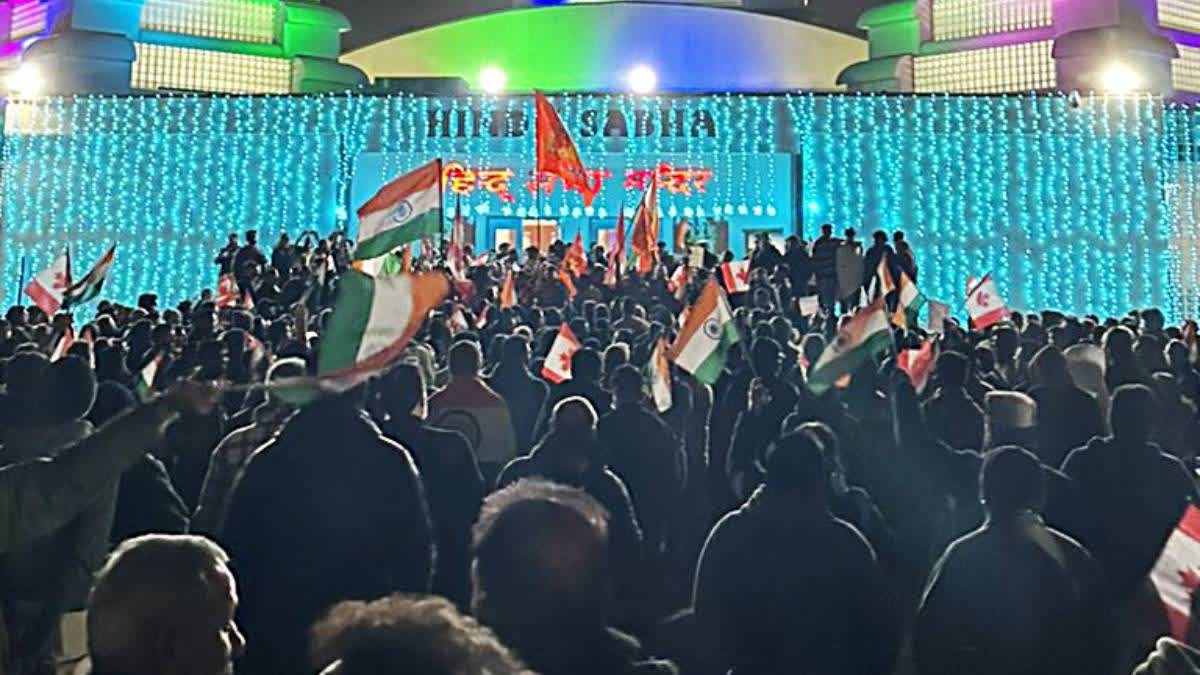New Delhi: Ajay Bisaria, India’s ex-envoy to Canada and Pakistan, said a handful of Khalistani extremists led the Trudeau government to put an effective veto on Canada's India policy as evident from public grandstanding and expulsion of diplomats.
“Recent events demonstrate that Trudeau’s government has effectively allowed a veto on its India policy to be exercised by a handful of Khalistani extremists. This bunch of violent goons has been allowed to sabotage the India-Canada diplomatic relationship, where mutual security concerns could easily have been settled behind closed doors, instead of by public grandstanding and expulsions of diplomats. With violent attacks on Hindu temples, the Khalistanis are now trying to drive a wedge between largely peaceful Hindu and Sikh Canadians”.
Meanwhile, Amit Dasgupta, who served as the Joint Secretary of the Public Diplomacy Division in the Ministry of External Affairs and former commonwealth fellow at McGill University in Montreal, said Trudeau knows the Canadian people are bigger than his government and have strong educational, research, trade and investment, and cultural links with India and Indians, which will survive Trudeau's hate politics.
“Supporting separatist demands and terrorism is not sustainable. Trudeau knows this but, like his father, is blind-sighted by his anti-India upbringing. At the same time, storms leave behind destruction. The period of reconstructing the bilateral relationship will take time and joint efforts. But it can and will be done, once the storm ends”, he said.
“All bilateral relationships have up and down phases. We are currently experiencing a down period vis-a-vis Canada, thanks to an adversarial and anti-India government in Ottawa. All storms end and so will this. India is a sovereign nation that has firmly rejected Trudeau's megaphone histrionics. I believe New Delhi's response to be mature, professional, and appropriate”, Dasgupta added.
He explained that India maintained its relations with all countries keeping not only the national interest but also bilateral and regional context in mind.
“How we engage with other countries depends on the respect they have for our national security concerns. Some Western governments gave shelter to Khalistanis as it served their national interests. Now with India emerging as a critical player in the global arena, such persons are a liability when you wish to forge closer links with New Delhi. India will continue to rise. Canadians need to ponder whether Trudeau is sacrificing Canada at the altar of his dislike for India, and if that should be tolerated,” Dasgupta noted, stressing that India is keen to engage and will take its rightful place at the high table. It needs a motley of understanding and respect for India's strategic interests for any engagement.
“The global order is rapidly changing, and the West recognises that its days of dominance and hegemony are over. Not engaging with India is not an option. India is not combative, but it certainly refuses to be pushed around," Dasgupta said.
Dr Mansi, Assistant Professor at Amity Univery Haryana and expert in Canadian studies gave a sense of the historical relations between the two countries.
“Canada’s bilateral relations with any country have been as tumultuous as that with India. It can be divided into many phases: The golden period of the late 1940s and early 1950s; the diplomatic ice age following the 1974 nuclear test by India (Canada took it as an act of “betrayal” and the violation of the Colombo Plan), benign indifference throughout 1980s and into early 1990s, re-engagement following the end of cold war”, she said.
Dr Mansi said as the Cold War advanced, Canada became more in sync with the American position and India more inclined towards the Soviet Union. Their relationship reached its nadir following the first nuclear test, Laughing Buddha, in 1974 and later with the 1998 Pokhran test. Canada was the most severe in its response than its Western neighbours. It recalled its high commission, cancelled CIDA programs, suspended trade talks, opposed India’s request for World Bank loans, challenged its bid for a permanent seat at UNSC, and took an anti-India stance in subsequent G8 meetings and imposed sanctions on India.
“The Khalistan movement in Canada and the 1985 bombing of an Air India flight have been irritants in Canada-India relations during the 1980s. Although the countries cooperated in the aftermath, New Delhi always felt that Canada sympathised with Sikh militants and failed to confront terrorism earlier. This is more apparent now than ever before”, she added.
She asserted that the ongoing situation between India and Canada is being seen in tandem with the ongoing enquiry in the US to argue that India is cooperating with the US and snubbing Canada.
“The approach of both countries to take up this matter has been different, and Canada has failed to produce any substantial evidence. This whole issue is Trudeau vs India and not Canada vs India. Trudeau has committed strategic mistakes and has misplaced priorities,” she said.
Also Read:



